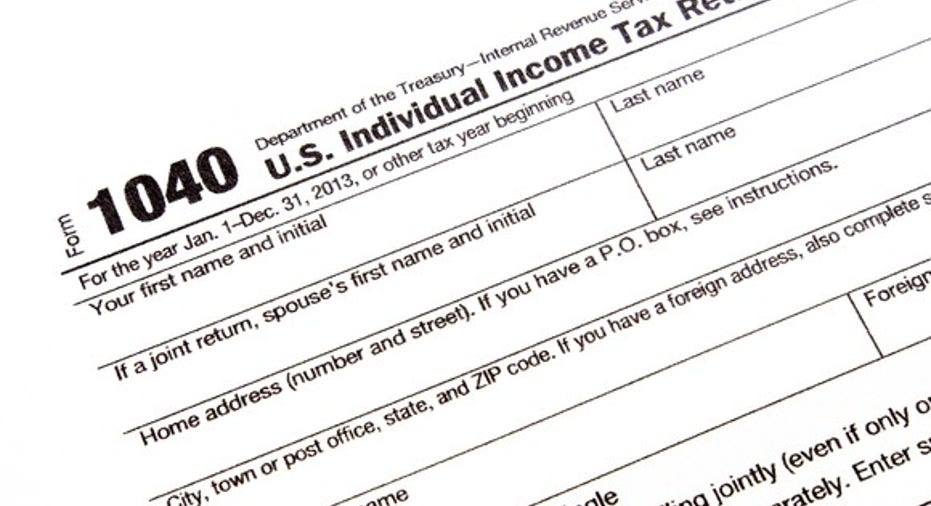What Will My Tax Deduction Savings Look Like?

Countless workers rely on tax deductions to hang onto more of their hard-earned money. But just how much cash will your deductions help you pocket? Tax deductions work by reducing the amount of your income that's subject to taxes. The value of your tax deductions will therefore be a function of your total write offs multiplied by your effective tax rate. The more federal tax deductions you can claim, the more of your earnings you'll shield from the IRS.
How tax deductions work
Any time you take a tax deduction, what you're doing is excluding that amount of income from taxes. If you earn $50,000 a year and claim a $2,000 tax deduction, you're essentially taking that $2,000 out of the tax equation so that you're only required to pay taxes on the remaining $48,000.
Image source: Getty Images.
Just how much will those tax deductions save you? It depends on your effective tax rate. Say you typically lose 25% of your earnings to taxes. If you're eligible for a $2,000 deduction, your tax savings will be 25% of that amount, or $500.
Tax deductions versus tax credits
Some people use the terms "tax deduction" and "tax credit" interchangeably, but in reality, they're very different beasts. A credit won't exempt part of your income from taxes; rather, it will serve as a dollar-for-dollar reduction of your tax liability.
To illustrate the point, imagine that both you and your colleague are eligible for a $2,000 tax deduction, only while your effective tax rate is 25%, his is 28%. In that case, you'd each benefit differently from that tax deduction -- you'd save $500 on your taxes, while your colleague would save $560. With a $2,000 tax credit, on the other hand, you'd each get the same value -- an automatic $2,000 tax savings, regardless of what your tax rate happens to be.
Another key difference between these two types of tax savings is that tax credits tend to phase out at higher income levels, which means strong earners often can't claim them. Tax deductions, on the other hand, are usually far more applicable to a wide range of taxpayers, making them a valuable savings tool regardless of income.
Common tax deductions
There are numerous tax deductions available to homeowners, the greatest of which is typically the mortgage interest deduction. Homeowners can also write off their property taxes, mortgage points, and private mortgage insurance (PMI) premiums.
If you're self-employed, there are a number of key deductions you should know about. If you use your vehicle for business purposes, you're allowed to deduct mileage. You can also deduct direct business expenses, like office supplies, as well as indirect expenses, like heat, water, and electricity in your home, if you have a dedicated space on your property where you do your work. And if you pay for health insurance out-of-pocket, like many self-employed workers do, you can take a deduction for your premiums as well.
Many taxpayers are also eligible to deduct their charitable contributions, including the value of goods they donate in lieu of cash. And if you come away with a net loss on your investments, you can take as much as a $3,000 deduction for any given tax year.
Less common tax deductions
Some tax deductions are more restrictive and therefore less popular than others, but if you're looking to shave money off your tax bill, it pays to see whether you're eligible. If you spend a lot of money on medical expenses, for example, you can deduct any costs that exceed 10% of your adjusted gross income (AGI). Similarly, you can deduct up to $2,500 in student loan interest if you meet certain conditions.
If you move during a given tax year for the purpose of getting a new job, you can deduct the cost of relocating provided you meet the right criteria. And if you're job hunting, you can take a deduction for expenses that exceed 2% of your AGI as long as you aren't fresh out of school and you're looking for work within your established field.
The more deductions you're able to claim, the more money you'll get to exempt from taxes. And the higher your tax rate, the more valuable those deductions will be. That's why it's important to read up on tax deductions and claim all of the ones you're eligible for. You may be surprised at how much you stand to save.
The $16,122 Social Security bonus most retirees completely overlook If you're like most Americans, you're a few years (or more) behind on your retirement savings. But a handful of little-known "Social Security secrets" could help ensure a boost in your retirement income. For example: one easy trick could pay you as much as $16,122 more... each year! Once you learn how to maximize your Social Security benefits, we think you could retire confidently with the peace of mind we're all after.Simply click here to discover how to learn more about these strategies.
The Motley Fool has a disclosure policy.



















